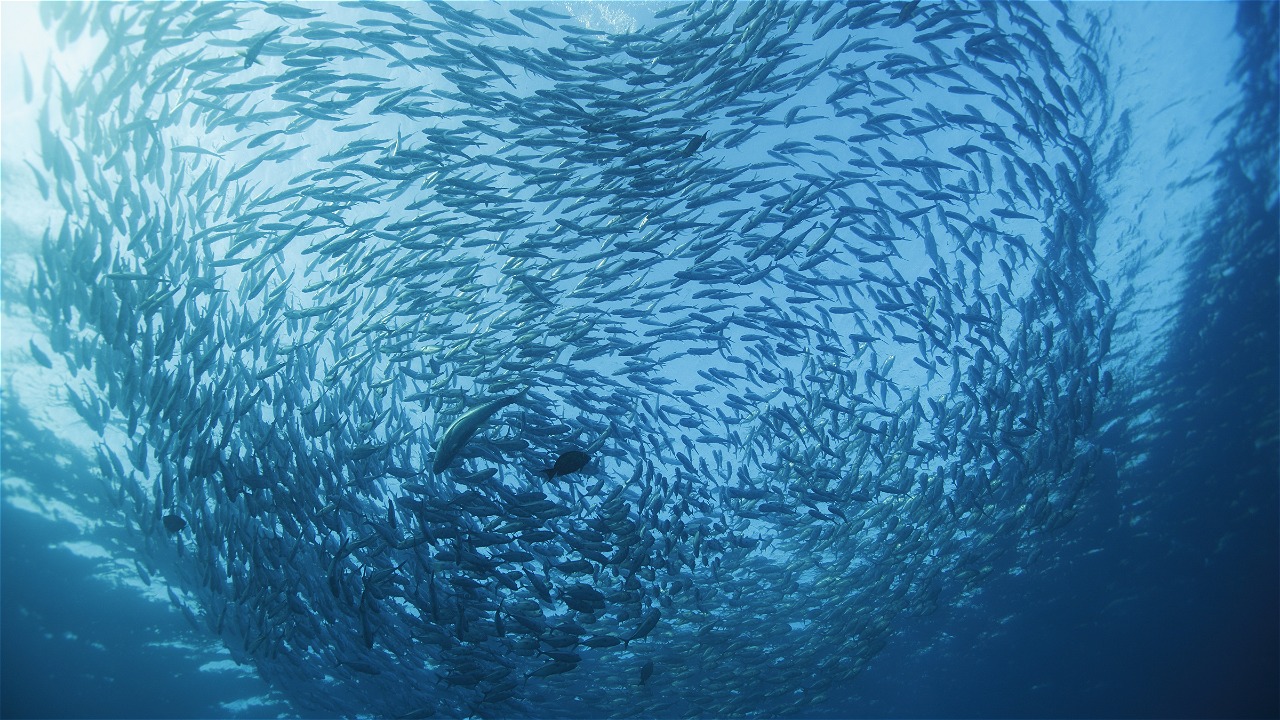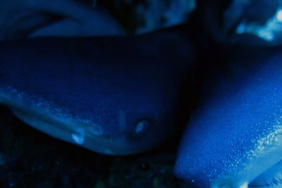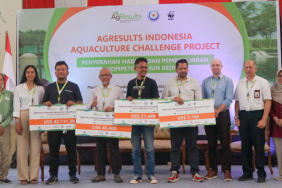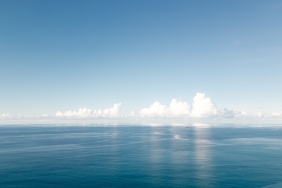GO TIGERS! AMERICAN INTERNATIONAL SCHOOL DHAKA DISCOVERY WEEK BALI 2016
Author: Annisa Ruzuar (Responsible Marine Tourism & Sustainable Seafood Communication Advisor)
Presentations from WWF-Indonesia, Reef Check Foundation and a short presentation from Jelajah Biru, opened the American International School Dhaka (AISD) Discovery Week Bali, on February 12, 2016. They were provided with an overview of WWF-Indonesia and Reef Check Foundation's conservation programs, which cover coastal and marine ecosystems. The three presenters also encouraged AISD students to travel by applying the best and fairest principles of responsible tourism. Over the next six days, 18 students and 3 teachers from AISD will gain experience volunteering for the environment and community while enjoying the natural beauty of Bali..
The next day, Panda Diving School instructors and trainers from Reef Check Foundation equipped the students with basic diving theory and skills. This was done in Pemuteran, the location of their four-day activity. Most of the participants were calm enough to get to the bottom of the pool and do a series of basic exercises. The theoretical understanding given in class was also well absorbed by them.
On the third day, students were divided into two groups. The first group rehabilitated mangroves with WWF-Indonesia assisted communities from Sumberkima, while the second group practiced diving at Bio-rock. The cloudy weather in Sumberkima made the participants quite comfortable planting and geo tagging 100 mangrove seedlings of the species Rhizopora mucronata. They were accompanied by WWF-Indonesia and the Mangrove Forest Management Center who explained the role of mangroves for the ecosystem and the lives of the Sumberkima community. Not only that, the first group was also invited to help the community cultivate seaweed. Wearing life jackets and snorkels, the students helped seaweed farmers install seedlings in pipes that have been installed in the sea. They were also shown how 'ice-ice'pests can threaten the health of seaweed. This swimming opportunity was a warm-up for the first group before the diving session on February 15, 2016. Yes, the two groups are scheduled to swap activities on the fourth day.
'Reef Check Day' with the "Do You See Me" method was the last day's activity in Pemuteran. In a class given the night before, instructors explained the species that are indicators of coral ecosystem health and the benefits of the data to be collected. The students enthusiastically discussed their underwater experiences and tried to remember the marine species they had seen until the teacher asked them to calm down several times. The same enthusiasm was seen when they went down the next day. While underwater, there was even one group that tried to communicate with their trainers to ask about the condition of the corals they saw.
The data collected by the students was recorded into a special form compiled by the Reef Check Foundation. The data collected is useful in providing a periodic overview of the coral health condition in Pemuteran. Through this simple method, even high school students can conduct coral monitoring and contribute to marine conservation in Indonesia.
After four days of activities in Pemuteran, the participants departed for the last activity location, Serangan, where they would visit the Turtle Conservation and Education Center (TCEC) and clean up Melasti Beach. The scorching weather in Serangan did not dampen the students' enthusiasm to collect plastic waste. "One plastic, one more turtle dies" suddenly became a slogan among the students. "Turtle thinks plastic bag as jelly fish, their favour favorite food," explained one of the students. Apparently the WWF-Indonesia team's explanation in the morning hit home and was remembered by the students. After cleaning the beach, they were invited to clean the turtle pond. The day's activities ended with the awarding of medals for the best volunteers. In addition to volunteering, the AISD participants also made donations to WWF-Indonesia's NewTrees Program, TCEC, and Reef Check Foundation.
This activity in Serangan also closed the series of Discovery Week Bali 2016. According to the teachers, Discovery Week Bali is different from AISD's activities in other countries. This is because the activities and materials provided for this visit to Bali are full of conservation values and volunteer work.
The AISD visit was also the beginning of a partnership between WWF-Indonesia and Jelajah Biru (check Jelajah Biru's page at http://www.jelajahbiru.com/), a private party that will market tour packages to several community-based tourism sites assisted by WWF-Indonesia. To date, these sites have been limited to the Sunda Banda Seascape, which is included in the World Coral Triangle (Coral Triangle). There are two main prerequisites set for each tour package it offers, namely that tourism activities contribute to conservation efforts in an area and provide benefits to the communities visited. These two prerequisites became the common thread of all AISD Discovery Week 2016 activities. So, ssee you next year AISD Tigers! .





